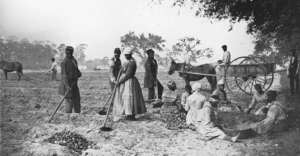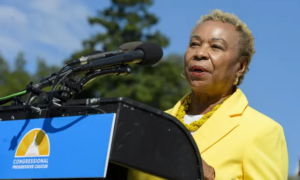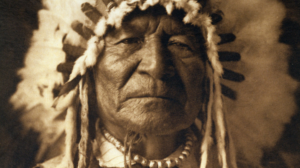This piece is my personal recount of the experience of participating as an audience in some of the sessions of the Aban Tribunal: The International People’s Tribunal established to investigate Iran atrocities in London, UK (November 10–14, 2021). This piece is my small way to thank all those involved in making this tribunal happen. Thank you for daring to dream of justice, of our justice. Thank you for reminding us that justice is real.
In all the years that I have lived the miscarriage of justice as an Iranian, ever since I was a little girl until now that I am a mom to a little girl myself, I thought of justice as a concept that sounds good, that is soothing to the ear, that is the promised land similar to what the heaven may be for many people of faith. Simply put, I thought of justice as something that the good people of the world will await and never really achieve and that bad people will fear and never really experience.
In all of my childhood as I found my parents behind bars as prisoners of conscience in Iran, I was sure we are on the right side of justice. My mom who was once a lawyer in Iran had a beautiful statue of justice in her office that she adored. I always thought that statue looked like my mom, always playfully decorating it with my colorful necklaces. When they, the authorities of the Islamic Republic of Iran, raided my mother’s office I kept on thinking about the beautiful statue of justice, Lady Justice, the goddess of justice, and wondered if it’s sitting all alone and dusty in some unknown basement in Tehran.
When I grew older, life in exile and the struggles of immigration while living far away wiped off my memory about the small details that perhaps in retrospect are all that matter in the end. I forgot about that beautiful and peaceful statue in my mom’s law office in Tehran, among so many other beautiful childhood memories. I decided to focus on the bigger things, on human rights, on justice broadly speaking, never really allowing myself to actually imagine how my birthplace would look like when one day justice would prevail. I defined myself as someone who will pursue the journey, not emotionally investing in the ultimate result for the fear of failure.
On November 10th, 2021 as I was sitting as an ordinary audience in the International People’s Tribunal established to investigate Iran atrocities in London, UK, something magical happened to me. As a justice seeking mother was sobbing and digitally testifying at the tribunal about the shooting of her son during the November 2019 protests in Iran, and as the judges from all over the world were taking note and carefully listening, I lost my sense of time and space.
I was not my professionally-defined self anymore. I was not the director of a human rights organization or a consultant of this and that initiative. I wasn’t a graduate of this and that university. I wasn’t any of my professional affiliations or achievements. I wasn’t any kind of an expert.
While listening to witness after witness, some having wrapped up their faces in peculiar ways not to be identified by the cruel authorities of the Islamic Republic, dialing in from Iran, and watching others testify in-person at the tribunal, I traveled to a place where I suddenly felt safe to accept that I am a victim. I suddenly felt safe to admit to myself that I am indeed hurt that I grew up outside truly scary prisons looking for my parents.
I suddenly admitted to myself that I have repeated nightmares of the night when outside a detention center in Tehran a young solider directed his gun and said, “Dokhtar koochooloo (Little Girl), we are taking you downstairs to kill you with this gun.” Years later I justified it to myself that he was a young boy, not much older than me at the time, and that he didn’t have as many toys I had, that perhaps that night he was playing, he was joking. I recalled the adults around me reassuring me as I was screaming my lungs out, “Azi jan, he is joking. Calm down! Calm down!” At the tribunal, I found the strength to accept to myself that even if he was joking, even if he didn’t have as many toys as I did, even if this gun was empty of bullets, he was wrong and his gesture cruel as an authority figure, so were his invisible bosses. At the tribunal, decades later, I admitted to myself for the first time that I am still scared of him and many others like him as the authorities of the Islamic Republic that either hurt us or had the intention to do so.
On November 10th at the tribunal, I suddenly felt safe to cry about having obliged myself to be strong till eternity. After decades of keeping my head up, I felt safe to let my guards down. I felt safe to ask many difficult questions that I have taught myself the hard way to swallow and not ask about the footprint of the atrocities of the Islamic Republic of Iran in my life, in our life.
As the witnesses were testifying, describing their horrific lived experiences and sometimes crying and the judges from all over the world were taking note, I lost myself in time and space and became a little girl.
I appeared as a little girl who had lost her parents in the crowd and was running around the tribunal scared that she would never find them again. I stepped up the podium where the judges were sitting, hiding behind their chairs and asking them if they had seen my parents. As little as I was in this instance of being lost in time and space, I also emerged a mom who felt has one job and only job and to protect this little girl in the tribunal from witnessing all this cruelty being recounted. As the judge asked for more detailed description of plainclothes authorities in Iran from one of the witnesses, I found myself holding the little girl that I was now as tightly as I could so that the plainclothes hitmen of the Islamic Republic don’t take her from her mom. The child that I was, I was trying to wrap my arms around my mom so that they don’t take my mom away from me.
The next day the tribunal continued. Witness after witness would testify and describe the unimaginable atrocities of the Islamic Republic and the way so much cruelty had ruined their families and their lives.
The little girl, now feeling a little less scared, was walking around looking for her lost toys at the tribunal.
Here in London at this tribunal, it was the first time I admitted to myself that years ago when my father embraced me for one last time, I secretly chuckled at his far-fetched dream of one day testifying at a truth and reconciliation commission. “You should go. They won’t let you live here, dokhtaram (my daughter). I’m staying in Iran until death, because I have to testify when a truth and reconciliation commission is formed”, he stumped his cane calmly on the ground as he hugged me one last time. I was consumed with anger that day not only at the Islamic Republic for being cruel and unjust and for torturing my father and detaining my parents, but also furious at my father for being so naïve and so idealistic. I was hurt that his last dream was to stay alive and to testify at a truth and reconciliation commission, and not to attend my graduation or wedding one day like most ordinary fathers.
For years, I have envied my mother’s continued hope for justice to prevail in Iran, for her to reunite with her status of the goddess of Justice in her office in Tehran, calling her unrealistic and melancholy. For years I have punished myself for feeling stuck in the past, considering it a sign of weakness, not admitting to myself that I need justice to prevail before I can move on. Justice is something that I always thought others need, and that I was going to do my small share to help them achieve it. I never gave myself the right to need justice somehow.
Here in London at this tribunal, after many years of struggling against myself not to be a victim for the fear of appearing weak and unreasonable, I felt free to be a victim. It was the first time that being a victim felt powerful, felt strong, felt capable of prevailing justice in its simplest, barest and least abstract manner. I looked at the judges and I felt safe. I was that little girl that no one could see in the audience, hiding behind the chair of the justices listening attentively to the testimonies of witness after witness.
This right now is the first time I say that “my justice will prevail”. It is the first time that I dare to dream of justice for the people of Iran and for myself.
I walk down the podium away from the judges to put on a new colorful necklace around the neck of the goddess of justice in Mimi’s office in Tehran. I hear my father calling me, “Azi jan, Baba, come back here. Tell your friends at the tribunal that I am ready to testify, dokhtaram (my daughter).”
I exit the building of the tribunal and let my tears out while sitting somewhere by a corner of a shop nearby, not realizing that I am not yet out of sight. The security guard of the building who saw me cry walks up to me and says, “I remember you from yesterday. See you tomorrow?” Struggling to find my way into the present time, I look at him and say, “Thank you for keeping this building, this one building in particular, safe.” He smiles puzzled and says, “Cheers!”
A new message pops up on my phone. My husband has sent me a cute selfie from himself and our daughter. “We miss you”, as if he knows I am lost in time and space. “Oh, I have to go!”, I remind myself. “I have a family of my own now, already for a while”, I repeat to myself as if I announce some breaking news. “I have survived!”, I whisper to myself while giggling and tearing at the same time. I look back. The security guard smiles. I see myself behind him, that little girl standing next to her dad. I wave them goodbye and say, “See you tomorrow?” They both vanish into empty space, while waving goodbye and smiling and holding hands tightly.
Mimi calls, “How was the Tribunal?” I answer, “I don’t have the words for it. But I love you, a lot. Do you remember that statue of justice in your office in Tehran?” She answers, “Of course, I do. I miss her so much.” I answer, “I have to run home, Mimi. I will call you later. I miss her too. Do you think she survived?” She answers, “No, she didn’t survive. But you survived, and that’s what matters. Do remember how much I loved that you were making her wear your necklaces when you were little? I bought you a few smaller lady justices throughout the years. But you never liked them. I have kept them all for you. I will give them to you the next time I see you!”
My mother and I spoke codes that evening. We always do. All the families of victims of atrocities of the Islamic Republic of Iran, the people of Iran, understand this code language. It’s the language of hope, survival and of collective justice. We will live to see our justice prevail, and we know now that it will prevail.
We are victims. Contrary to what they teach you in schoolbooks, victims are powerful, really very powerful, even when dead for long.




